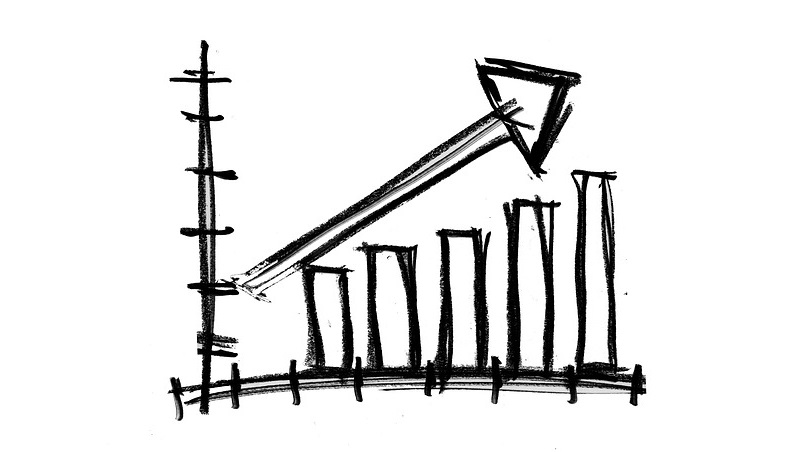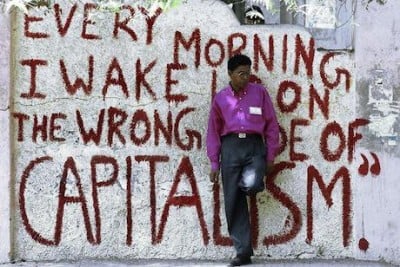Real Capitalism Isn’t Rigged; Socialism Is
 As we’ve noted before, Keynesian central planners suffer from fatal conceit. They think they are smart enough to plan and direct the economy better than the free market. When you boil it all down, these people believe they can do a better job of making your economic decisions than you can. After all, a free market is nothing more than the aggregate of all of our individual economic choices. Paul Krugman serves as the poster child for central planning arrogance, but another Nobel Prize-winning central planner is making a name for himself by tearing down the free market. Joseph Stiglitz claims capitalism is “rigged.” But as economist Bill Anderson shows in an article recently published on the Mises Wire, Stiglitz has got it completely wrong. Capitalism – in the true sense of the word – isn’t rigged. Socialism is.
As we’ve noted before, Keynesian central planners suffer from fatal conceit. They think they are smart enough to plan and direct the economy better than the free market. When you boil it all down, these people believe they can do a better job of making your economic decisions than you can. After all, a free market is nothing more than the aggregate of all of our individual economic choices. Paul Krugman serves as the poster child for central planning arrogance, but another Nobel Prize-winning central planner is making a name for himself by tearing down the free market. Joseph Stiglitz claims capitalism is “rigged.” But as economist Bill Anderson shows in an article recently published on the Mises Wire, Stiglitz has got it completely wrong. Capitalism – in the true sense of the word – isn’t rigged. Socialism is.
The following article by Bill Anderson was originally published on the Mises Wire. The views expressed are his own and do not necessarily reflect the views of Peter Schiff or SchiffGold.
Ever since winning the Nobel Memorial Prize in “Economic Science” in 2001, Joseph Stiglitz has been a one-man advocacy band for growth of the state. After 9/11, for example, he called for the formation of a federal agency to provide security for airline passengers, which he claimed would send a “signal” for quality. (Stiglitz won his prize for “proving” that free markets are “inefficient” and always result in less-than-optimal outcomes because of asymmetric information. Only government in the hands of Really Smart People like Stiglitz can direct production and exchange consistently to efficient and “just” results.)
More than a decade ago, Stiglitz lavished praise for the socialist government of the late Hugo Chavez in Venezuela, declaring:
Venezuelan President Hugo Chavez appears to have had success in bringing health and education to the people in the poor neighborhoods of Caracas, to those who previously saw few benefits of the country’s oil wealth.
He went on to claim that the Chavez policies of expropriating the capital structure of private oil companies in Venezuela would result in a more “equal” distribution of wealth in that country, something he believes is desirable everywhere. Interestingly, since Venezuela’s socialist “experiment” went south, complete with hyperinflation and one of the worst financial and economic crises ever seen in the Western Hemisphere, Stiglitz has been silent, at least when it comes to explaining why the so-called economic miracle in Venezuela was unsustainable.
Although Stiglitz no longer is lavishing praise on Venezuelan socialism, he hardly is silent about his belief that only expanded state power can “save” the U.S. economy from self-destruction. In a recent article in Scientific American, he declares that “The American Economy is Rigged.” However, he adds in the title, “And what we can do about it.”
Those familiar with the public declarations of Stiglitz, Paul Krugman, and others in the “markets are internally destructive” camp, nothing Stiglitz writes in the article is surprising. For that matter, it is pure Stiglitz to have it in Scientific American, since he can claim he is engaged in scientific discourse, something he can prove with a lot of mathematical equations that “prove” free markets are bad :
From Stiglitz’s perspective, markets are rife with failure in processing and conveying information, and government must be ready to correct these failures. In his Nobel lecture, Stiglitz spoke of having “undermined” the free-market theories of Adam Smith, asserting that Smith’s “invisible hand” either didn’t exist or had grown “palsied.” He noted that major political debates over the past two decades have tended to focus on the “efficiency of the market economy” and the “appropriate relationship between the market and the government.” His approach favored government.
Furthermore, he declared in his Nobel lecture that “perfect competition is required if markets are to be efficient” (italics his). To Austrian economists, his statement raises the question as to why we are to assume that governments somehow possess the necessary information to produce “efficient” outcomes in economic exchanges, but Stiglitz never has tried to go there. He simply assumes governmental superiority regarding information and then runs with that assumption.
Stiglitz’s latest article lays out the theme that markets systematically produce inequality, and that over time we are faced with the situation in which only a privileged few people benefit from the capitalist system while the vast majority slip into the economic abyss. He writes:
In his celebrated 2013 treatise Capital in the Twenty-First Century, French economist Thomas Piketty shifts the gaze to capitalists. He suggests that the few who own much of a country’s capital save so much that, given the stable and high return to capital (relative to the growth rate of the economy), their share of the national income has been increasing. His theory has, however, been questioned on many grounds. For instance, the savings rate of even the rich in the U.S. is so low, compared with the rich in other countries, that the increase in inequality should be lower here, not greater.
An alternative theory is far more consonant with the facts. Since the mid-1970s the rules of the economic game have been rewritten, both globally and nationally, in ways that advantage the rich and disadvantage the rest. And they have been rewritten further in this perverse direction in the U.S. than in other developed countries—even though the rules in the U.S. were already less favorable to workers. From this perspective, increasing inequality is a matter of choice: a consequence of our policies, laws and regulations.
In the U.S., the market power of large corporations, which was greater than in most other advanced countries to begin with, has increased even more than elsewhere. On the other hand, the market power of workers, which started out less than in most other advanced countries, has fallen further than elsewhere. This is not only because of the shift to a service-sector economy—it is because of the rigged rules of the game, rules set in a political system that is itself rigged through gerrymandering, voter suppression and the influence of money. A vicious spiral has formed: economic inequality translates into political inequality, which leads to rules that favor the wealthy, which in turn reinforces economic inequality.
All of this results in what he calls a “feedback loop” that results in the downward spiral. We are to assume that the growth in income inequality will grow until we are at the Marxian state of “the reserve army of the unemployed,” or at least a reserve army of people that are unable to find work that will allow them to support themselves.
Like so many others who have claimed capitalism is destroying the middle class, Stiglitz turns to the policies created during the Great Depression and after World War II for salvation, seeing the time from the 1930s to the late 1950s as a supposed golden era of prosperity. He writes:
After the New Deal of the 1930s, American inequality went into decline. By the 1950s inequality had receded to such an extent that another Nobel laureate in economics, Simon Kuznets, formulated what came to be called Kuznets’s law. In the early stages of development, as some parts of a country seize new opportunities, inequalities grow, he postulated; in the later stages, they shrink. The theory long fit the data—but then, around the early 1980s, the trend abruptly reversed.
To reverse this trend of rising inequality – and rising poverty – Stiglitz calls for a return to the Depression-era policies of high marginal taxes and using the regulatory structure to recreate the financial and business cartels built by New Deal regulations that dominated American production, finance, and transportation at that time. Indeed, apart from the anti-discrimination laws that now are part of the modern legal landscape, Stiglitz believes that the only hope for our future is to return to the past:


